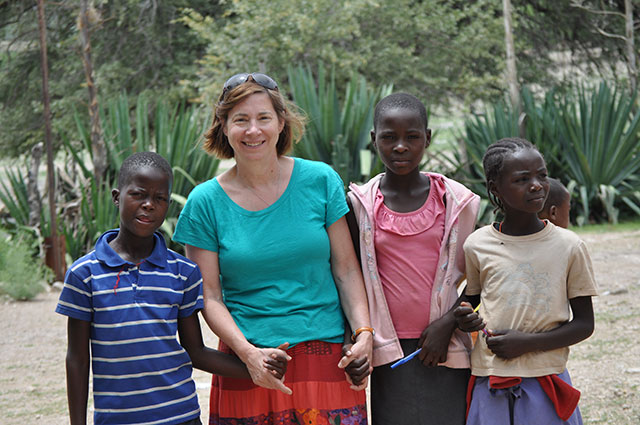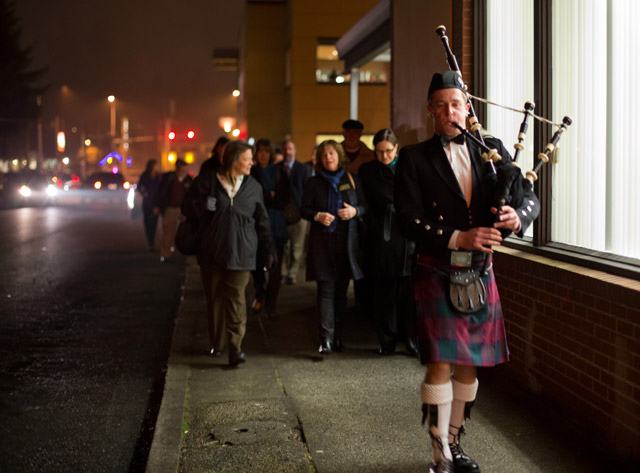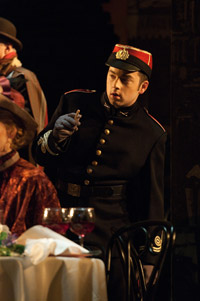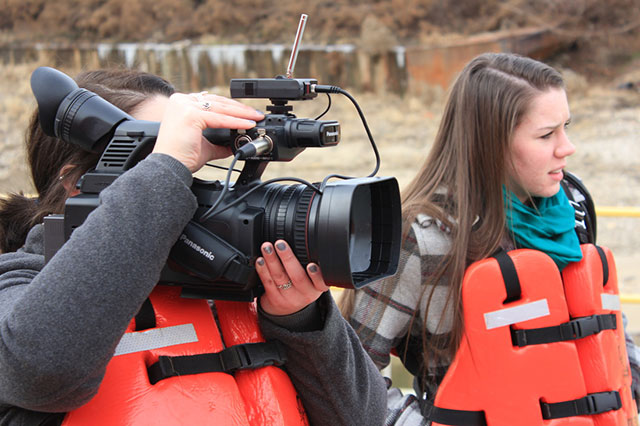Page 127 • (2,920 results in 0.059 seconds)
-

, where she earned her master’s and Ph.D. at Stanford University. Her research focused on the development and burn-out rate of first-year teachers, and what keeps a teacher loyal to a district where they first ply their craft. It was the “aha” moment for her. Her true calling was helping teachers teach. “Of course it’s all about the kids,” she said. But she felt that working with good teachers, and keeping them on the path to their dreams – and avoid burnout – is just as valuable as being in front of
-

marine mammals experienced in captivity, O’Barry founded the Dolphin Project. The project works to end captivity and rehabilitate dolphins or provide an engaging Indonesia-based sea pen if they cannot return to the wild. The Dolphin Project’s Umah Lumba Rehabilitation, Release, and Retirement Center is the first permanent rehabilitation, release, and retirement facility for former dolphin performers. “‘Umah Lumba’ means ‘dolphin house’ in Balinese,” Stafki says. PLU and Beyond Stafki transferred to
-

a Vice President and Senior Sales Executive for SuperGraphics, an innovative Seattle-based company that specializes in retail and environmental print solutions with a diverse client base that ranges from small local businesses to Boeing and the Seattle Seahawks. Thanks to Thorpe, that client list also includes PLU. “It’s extremely rewarding to know that I can help out my alma mater,” he said. “It’s been a great partnership and relationship. The reason I loved PLU in the first place is that PLU
-

from one of her research areas, Bernstein will address how U.S. universities striving for representational diversity often fail to create meaningful, pluralistic diversity. She’ll also explore the critical concept of behavioral comfort: the felt ease, safety and self-efficacy of interacting appropriately with diverse others. “Findings indicate that educational institutions should strive to create more settings in which positive intercultural relationships occur in order for students to establish
-

and has impacted every part of their life. “The years I spent with the dCenter really, really helped me grow communication skills, leadership skills, how to appreciate parts of my identity, and appreciate other’s identities and things that they bring to the community.” “PLU definitely needs the Diversity Center.” Rebecca recommends the dCenter as a great place to have interesting conversations, to learn more about yourself and to grow. “Or just to relax, to be honest. Just have some downtime
-
beginning of this year, the club saw a turnout of nearly 20 members, and since has maintained a consistent turnout of about 15 members each week. “I think I get the most enjoyment out of coming each week and seeing kids laugh,” he said. “It is cool to see the progress of some of the students who come and enjoy something that’s different.” Anthony Markuson, a sophomore from Chester, Mont., signed up for LUNICYCLERS at the involvement fair his first year at PLU, attended one practice and never looked back
-

the time he can allot to playing. “Going to college has really limited me in my ability to practice,” he says, in the same way someone might describe having not seen a good friend in a long time. As the kicker for PLU’s football team, sports writer for the Mooring Mast, tubist in PLU’s Wind Ensemble, and a full-time student majoring in communications, he stays busy. Concerning his future with the instrument he says, “I just want to keep on playing and play for gigs on the side. I don’t want to
-

production of La Boheme. John Marzano ’13, who has been singing for just about as long as he can remember, joined the group last year as a chorus member in the production of Turandot by Puccini. After the show ended on Aug. 18, Marzano was invited back as a chorus member in La Boheme. Rehearsals for the universally popular classic began in January and since then Marzano has been leaving campus right after Choir of the West practice to head up to Seattle. Leaving at 5 p.m. puts him in Seattle around 6 p.m
-
feet above is call type 3, a crossbill which feeds on Western Hemlock cones. The next step in Smith’s research requires bringing female crossbills into captivity to see how they respond to songs of different call types. “I like giving students an opportunity to have an experience they may not have in a lab,” Smith said, as she and Grossberg picked their way down the muddy trail to the beach. Once the songs are collected, Smith and her students,Grossberg and Kirsten Paasche ’13, will take the sounds
-

elsewhere. Specifically, the research team traveled across North America – from the Puget Sound region to the Rocky Mountains, Texas, the Gulf of Mexico, the East Coast and the Great Lakes – to study areas adversely affected by drought, population growth and questionable management practices. See Tapped Out “Tapped Out” premieres at 2 p.m. Saturday, Oct. 26 at the Seattle Central Public Library, 1000 Fourth Ave. Find out more about Tapped Out. Kortney Scroger ‘14, a PLU senior communication major who
Do you have any feedback for us? If so, feel free to use our Feedback Form.


